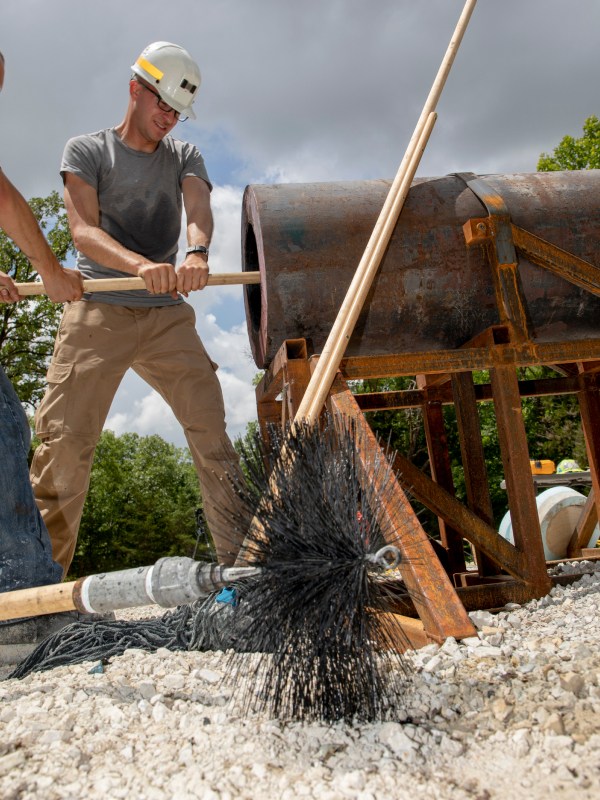Mining and Explosives Engineering
PhD in Explosives Engineering
Earn a PhD in Explosives Engineering
What sets S&T's PhD degree in explosives engineering apart? It is the only one in the nation!
Missouri S&T’s PhD degree in explosives engineering prepares students for careers in academia, consulting and industry by providing them the opportunity to conduct novel research in energetic materials (including explosives) and related areas. You will be mentored by leading experts in explosives engineering and work with unique research facilities.
Want to Know More?
Get info on our program, scholarships, how to visit campus, admissions and more. Take the next step in solving for tomorrow!
Degree Information
What Students Say About S&T
.jpg)
I have worked for the National Labs since 2019 and the demand for students with the expertise gained from this program has never been higher. The explosives program here at S&T has the resources and facilities to allow students to gain hands on research experience in energetic materials, detonation, and shock physics, which is not available at other universities and has the ability to grow as the department and demand for research in this field grows. I couldn't have chosen a better program to facilitate my career goals.
— Emily Johnson, PhD

When I initially thought of leaving the military, I knew I needed something to bridge the gap from a skill set that didn't "exactly" apply. This program taught me how to transition my military explosives and engineering knowledge for use in the construction and mining industries all while online. The Master and Doctoral programs are truly the catalyst for my professional success.
— Nathan Skopak, PhD
Research in Explosives Engineering
The United States recognizes the increasing importance of securing the supply chain for explosives, propellants and pyrotechnics because of their importance to industry and national defense. Explosives engineering faculty and students conduct research related to energetic materials, including explosives hazards and effective manufacture, transport, use and storage of explosives using experimental testing and numerical simulation. This research includes traumatic brain injury, rock blasting, structural response to blasts, effects of explosively formed projectiles (EFPs), shock physics and many other areas.
Explore Research Fields
Your Career in Explosives Engineering
Continue your education in an exciting and growing field.
Explosives engineers can choose from a variety of exciting careers, including research and development, testing, safety, production, field technical service, marketing, and teaching. Explosives engineers work for national laboratories, universities, companies that develop and supply personal protective equipment, defense contractors, blasting & explosives companies, heavy civil construction companies, and many more.
Career Paths
- Researchers (both government and private companies)
- Technical services engineers with explosives and blasting companies
- Engineers with consulting firms
- Law enforcement
Explosives Engineers Work With:
- Universities
- National laboratories
- Explosives manufacturers
- Law enforcement agencies
- Consulting companies


Follow Mining and Explosives Engineering